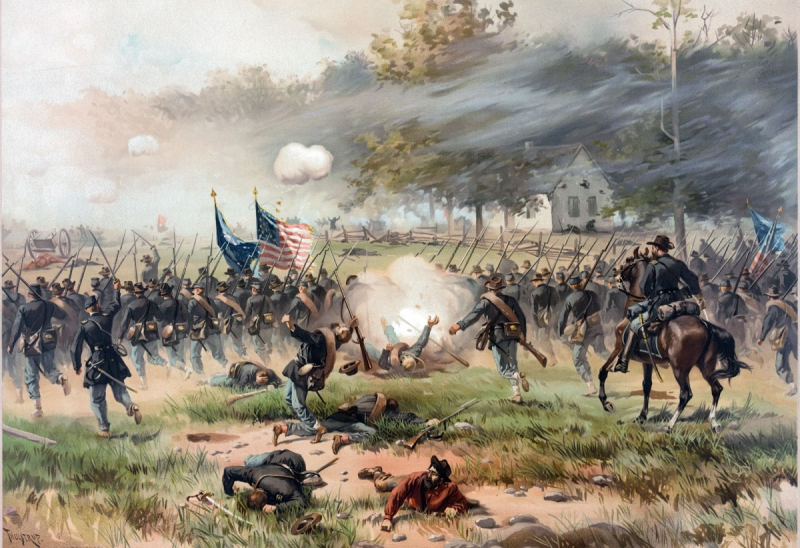The Battle of Antietam - "A Savage Day In American History" - is the key factor to the issuance of the Emancipation Proclamation.
When President Lincoln first proposed the Emancipation Proclamation to his cabinet, they worried that the Proclamation was too radical. It was only Lincoln’s firm commitment to the necessity and justice of the Proclamation, along with the victory at Antietam, which finally persuaded his cabinet members to support him.
The Battle of Antietam also called the Battle of Sharpsburg, occurred on September 17, 1862, at Antietam Creek near Sharpsburg, Maryland. It pitted Confederate General Robert E. Lee’s Army of Northern Virginia against Union General George McClellan’s Army of the Potomac and was the culmination of Lee’s attempt to invade the north. After the battle ended, thousands of bodies littered the sprawling Antietam battlefield and both sides regrouped and claimed their dead and wounded. Just twelve hours of intense and often close-range fighting with muskets and cannons had resulted in around 23,000 casualties, including an estimated 3,650 dead. The battle’s outcome changed the course of the Civil War, shaped America’s future, and remains the deadliest one-day battle in all of American military history.
The Union’s claim of victory at Antietam and Lincoln’s Emancipation Proclamation is thought to be why Republicans held the House in the 1862 mid-term elections. They also eliminated any chance that France and Great Britain would acknowledge the Confederacy and defend them. This reinforced the Confederacy's isolation and made it much more difficult for them to resupply their troops and civilians.











